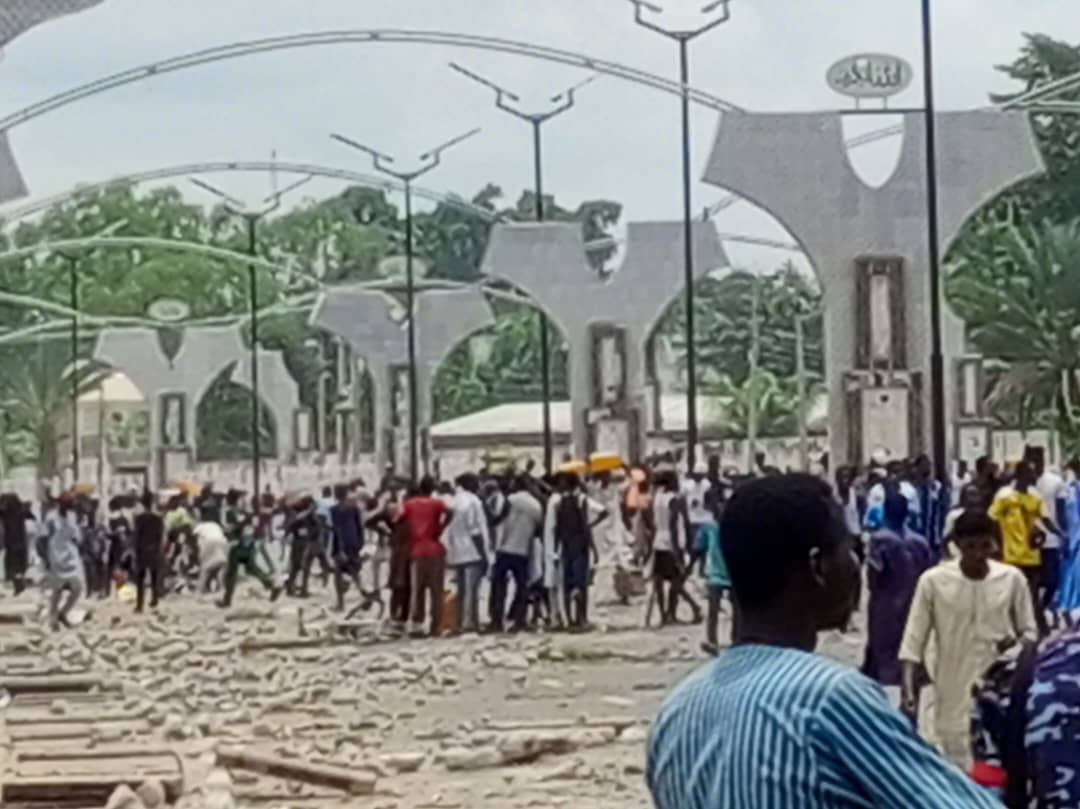10 days of rage: The day after
The recent 10-day protests took two different trajectories – a 10-day protest in the South and 10 days of rage across the North. This, indeed, brought significant upheaval, particularly in the northern region. The protests (demonstrations?), which began with legitimate grievances, quickly devolved into widespread looting and arson, overshadowing the initial issues that prompted the […]

protest 15
The recent 10-day protests took two different trajectories – a 10-day protest in the South and 10 days of rage across the North. This, indeed, brought significant upheaval, particularly in the northern region. The protests (demonstrations?), which began with legitimate grievances, quickly devolved into widespread looting and arson, overshadowing the initial issues that prompted the protests.
The scale of the chaos has been staggering, with reports of extensive damage to property and infrastructure, including loss of lives. The violence and destruction, particularly in the northern cities of Kaduna, Kano, Maiduguri and many other cities and towns in the region, have complicated efforts to address the root causes of the unrest, making it challenging to find effective solutions amidst the mayhem.
This situation has exacerbated the difficulties faced by both the affected communities and the government, which now faces the dual challenge of addressing the immediate aftermath of the violence while also working to resolve the underlying issues that led to the protests.
Northern Nigeria indeed faces significant challenges, including a high number of out-of-school children, widespread poverty, and leadership issues. The region has long struggled with educational disparities, economic underdevelopment, and governance problems.
- FG to recruit 3,500 teachers into unity colleges
- Thailand’s Court sacks Prime Minister Srettha Thavisin
The region has one of the highest rates of out-of-school children in the country. Factors contributing to this include economic hardship, cultural practices, and inadequate educational infrastructure. Many children, especially girls, do not have access to quality education, which perpetuates the cycle of poverty and limits future opportunities.
The North which used to be the major agricultural hub of the country, producing a substantial portion of the nation’s food supply and contributing significantly to the economy, particularly the non-oil sector. This arable land is now under the control of bandits and insurgents and therefore inaccessible to the farmer. This has turned a large chunk of the region’s virile and vibrant population into redundancy and a stagnation or even regression in the economy of the region.
We are also often seen as the epicenter of poverty in Nigeria. Economic development has been uneven, and many areas lack the necessary infrastructure and services to improve living conditions.
The combination of limited economic opportunities and high poverty rates exacerbates the challenges faced by families and communities. Any and all the problems the north faces today are enough to stimulate the reaction by the people which we saw last week.
Northern politicians and elected leaders take pleasure in flaunting opulence amidst widespread want without worrying about the far-reaching consequences for both society and governance. Their ostentatious display of wealth and luxury in the face of economic hardship and inequality is what has exacerbated the current social tensions that led to the explosion of anger we saw in the North during the 10 days of rage.
The disparity between the elite and the impoverished is at its zenith, thereby fostering resentment and creating a divide that is destabilising our society.
This display of unearned wealth while many citizens struggle with poverty, unemployment, or inadequate basic services, is bound to lead to what we are witnessing in the north today – mistrust between the leaders and the led. Public trust in political leaders hinges on the perception of their empathy and commitment to addressing the needs of their constituents. Sadly, the constituents “doesn’t matter”.
There are widespread perceptions of ineffective and unresponsive leadership in the region. Concerns about corruption, lack of accountability, and insufficient investment in critical areas such as education and healthcare contribute to the frustration and disillusionment of the population. The disconnect between leadership and the needs of the people has often led to poor governance and a lack of progress in addressing the region’s most pressing issues.
Addressing these challenges requires a multifaceted approach, including improved governance, targeted investments in education and economic development, and community engagement to ensure that the needs of the population are met. Efforts must also focus on creating opportunities for youth and addressing systemic issues that contribute to poverty and educational inequality.
In such turbulent times, the focus often shifts to restoring stability and security, but it’s crucial for all stakeholders to remember the original demands and concerns of the protesters. Ensuring that these issues are not lost in the chaos is vital for achieving a sustainable resolution and preventing future conflicts.
Babayola M. Toungo wrote from Abuja
